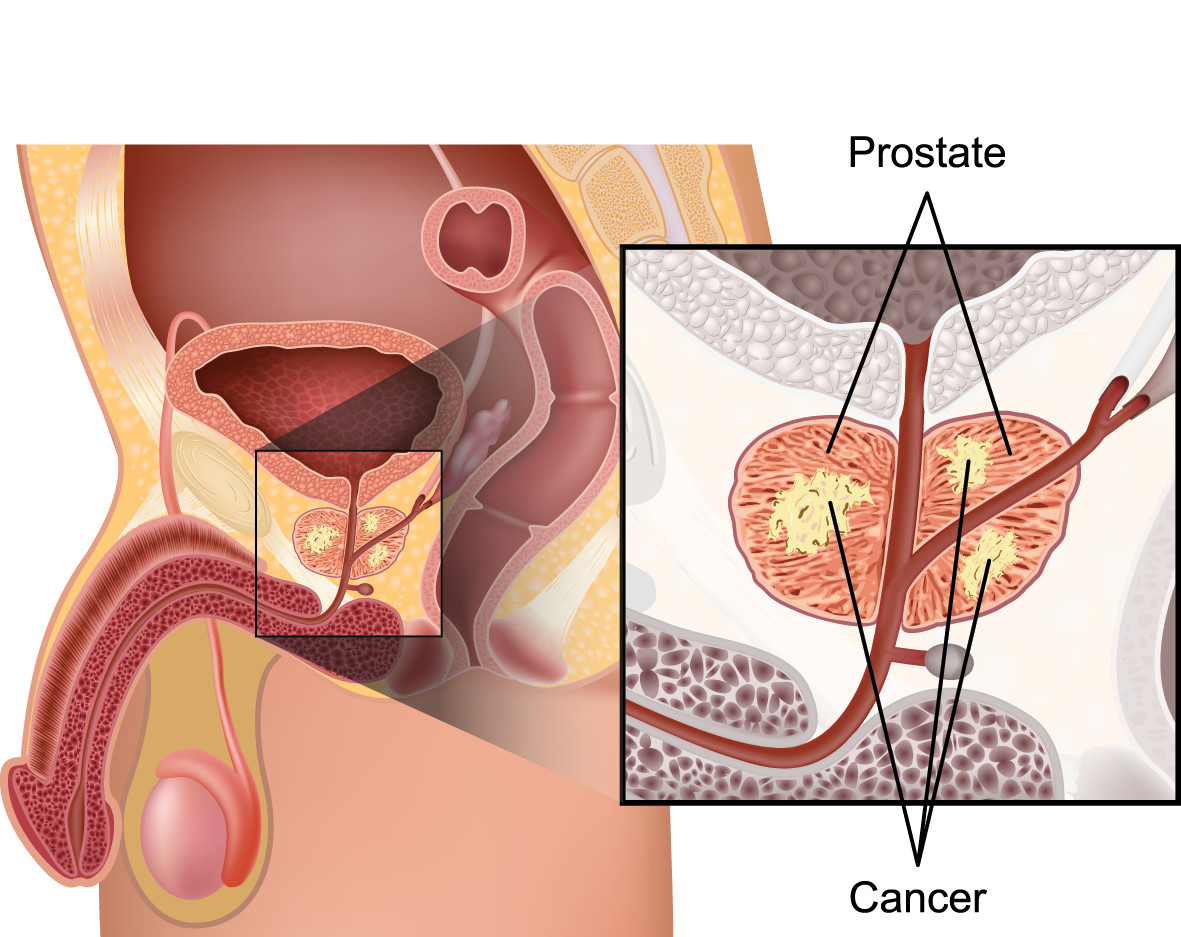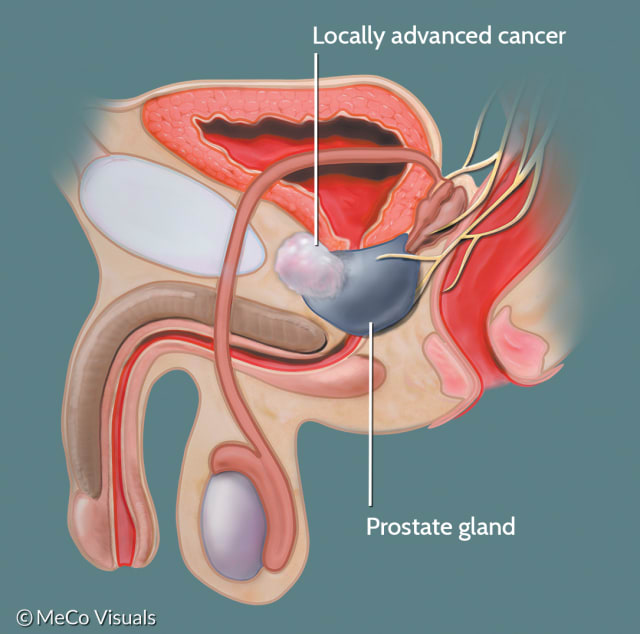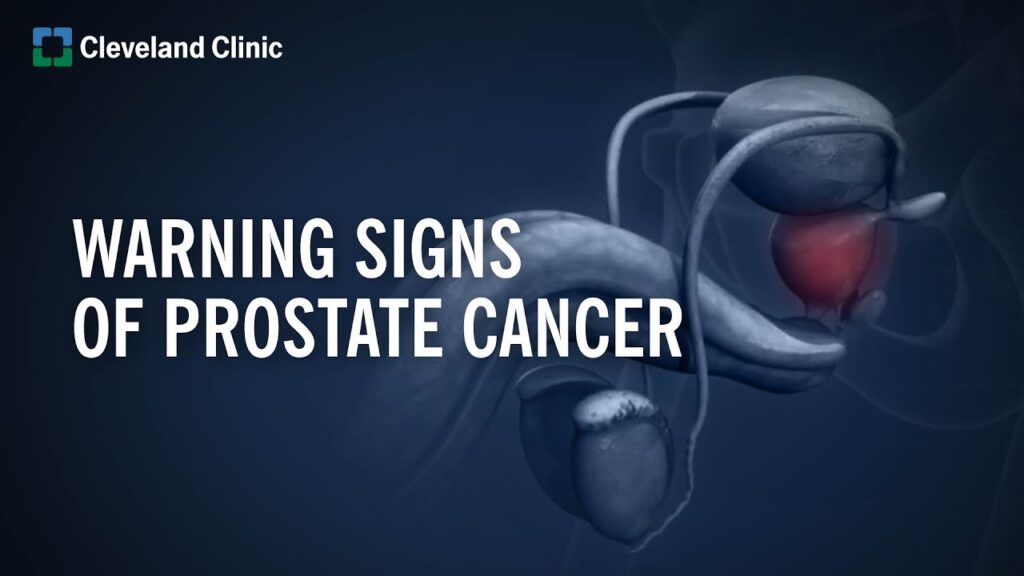Breaking the Silence: How Men’s Health Advocates Are Shattering the Prostate Cancer Taboo

The Importance of Raising Awareness about Prostate Cancer

Prostate cancer is one of the most common types of cancer among men, with millions of cases diagnosed worldwide each year. Despite its prevalence, there is still a lack of awareness about the importance of early detection and treatment options. Raising awareness about prostate cancer is vital to ensure men are equipped with the knowledge they need to make informed decisions about their health.
The first step in raising awareness is educating men about the risk factors associated with prostate cancer. Age, family history, and race are all factors that can contribute to the development of this disease. By understanding these risk factors, men can take proactive steps towards prevention and early detection. Additionally, raising awareness about the importance of regular screenings, such as prostate-specific antigen (PSA) tests and digital rectal exams (DRE), can help ensure that potential cases are identified early and treated promptly. Through education, we can empower men to take control of their health and seek necessary medical attention when needed.
• Age, family history, and race are risk factors for prostate cancer
• Educating men about these risk factors can help them take preventive measures
• Regular screenings like PSA tests and DREs are important for early detection
• Raising awareness about the importance of screenings can lead to prompt treatment
• Education empowers men to prioritize their health and seek medical attention when necessary
Understanding the Stigma Surrounding Prostate Cancer

Prostate cancer is one of the most prevalent cancers among men worldwide, yet a certain level of stigma still surrounds this disease. This stigma stems from various misconceptions and societal expectations that contribute to the reluctance of men to openly discuss and seek help for their prostate health concerns. It is crucial to understand the underlying factors that perpetuate this stigma in order to effectively address and dispel it.
One key factor that contributes to the stigma surrounding prostate cancer is the association of the prostate with masculinity and societal expectations of manhood. The prostate is a gland located below the bladder that plays an important role in male reproductive health. However, discussing issues related to the prostate, such as cancer or other conditions, can sometimes be perceived as a challenge to one’s masculinity. This can lead men to feel embarrassed or emasculated when facing prostate health concerns and may discourage them from seeking timely medical attention.
Another factor that contributes to the stigma is the lack of awareness and education about prostate cancer. Limited conversations about the disease and its impact on men’s lives can lead to misunderstandings and unfounded fears. This further adds to the reluctance of men to openly discuss their prostate health and seek appropriate care. Increasing awareness and fostering open dialogue about prostate cancer are essential steps in dismantling the stigma surrounding the disease.
By addressing these underlying factors, we can begin to break down the stigma surrounding prostate cancer. This involves promoting open discussions about prostate health and challenging societal expectations that hinder men from seeking timely care. Recognizing and respecting the diverse experiences and emotions that may arise with a prostate cancer diagnosis is key to providing support and guidance to individuals and their loved ones. Ultimately, by fostering a supportive and informed environment, we can empower men to take charge of their prostate health and improve outcomes for those affected by prostate cancer.
Men’s Health Advocates: Leading the Way in Prostate Cancer Advocacy
Men’s health advocates play a crucial role in leading prostate cancer advocacy efforts. These dedicated individuals, often prostate cancer survivors themselves, have firsthand experience with the challenges and impact of the disease. By sharing their personal stories and advocating for policies that prioritize prostate cancer awareness, prevention, and treatment, they have become powerful agents of change in the fight against this prevalent disease.
Through their advocacy work, men’s health advocates contribute to the dissemination of vital information about prostate cancer, raising awareness and dispelling myths and misconceptions surrounding the disease. They provide educational resources and encourage men to prioritize their health by seeking regular screenings and early detection. Additionally, these advocates collaborate with healthcare professionals, organizations, and policymakers to shape prostate cancer policies that address the needs of patients and improve outcomes. Their dedication and tireless efforts are instrumental in supporting and empowering prostate cancer patients and their families, as well as in advancing research and innovation in the field.
Dispelling Myths and Misconceptions about Prostate Cancer
Prostate cancer is a topic surrounded by several myths and misconceptions, leading to confusion and misunderstandings among both men and women. One common misconception is that only older men are at risk for developing prostate cancer. While age is indeed a risk factor, it is important to note that prostate cancer can affect men of all ages, including those in their 40s and 50s. Therefore, it is crucial for men to be aware of the signs and symptoms of prostate cancer and to undergo regular screenings, regardless of their age.
Another prevalent myth is that having a high level of sexual activity or masturbation increases the risk of prostate cancer. However, numerous studies have shown no conclusive evidence to support this claim. In fact, some research suggests that regular ejaculation may actually be beneficial in reducing the risk of developing prostate cancer. It is important to dispel such misconceptions and focus on evidence-based information to ensure that individuals have a clear understanding of the risk factors and preventive measures associated with prostate cancer.
Dispelling Myths and Misconceptions about Prostate Cancer is crucial in promoting accurate knowledge and increasing awareness among the general population. By providing scientifically-backed information, we can empower individuals to take proactive steps towards early detection and prevention.
The Psychological Impact of Prostate Cancer on Men and Their Families
Prostate cancer not only affects a man physically but also has a significant psychological impact on both the patient and his family. The diagnosis of prostate cancer can bring about a range of emotions, including fear, anxiety, and depression. The uncertainty of the disease, the potential for treatment side effects, and the fear of mortality can all contribute to heightened levels of stress and emotional distress.
Studies have shown that the psychological impact of prostate cancer can extend beyond the patient himself and affect his family members as well. The journey of dealing with prostate cancer includes the emotional burden of supporting a loved one through diagnosis, treatment decisions, and potential lifestyle changes. Family members may experience caregiver distress, feelings of helplessness, and concerns about their loved one’s well-being.
It is crucial to address the psychological impact of prostate cancer and provide support for both patients and their families. Psychosocial interventions, such as counseling, support groups, and educational programs, can play a significant role in helping individuals cope with the emotional challenges that arise during the course of the disease. By recognizing and addressing the psychological well-being of prostate cancer patients and their families, healthcare professionals can contribute to improving the overall quality of life for those affected by this condition.
Promoting Early Detection: The Key to Improving Prostate Cancer Outcomes

Promoting early detection of prostate cancer is crucial in improving outcomes for patients. This is because early detection allows for timely intervention and treatment, increasing the chances of successful management of the disease. One of the primary tools for early detection is regular prostate cancer screenings, such as the prostate-specific antigen (PSA) test and digital rectal examination (DRE). The PSA test measures the levels of a protein called prostate-specific antigen in the blood, which can be an indicator of prostate cancer. The DRE involves a physical examination of the prostate gland to check for any abnormalities or signs of cancer. These screenings are recommended for men above a certain age or those at higher risk, and they play a pivotal role in detecting prostate cancer in its early stages.
In addition to screenings, it is also important to promote awareness about the common signs and symptoms of prostate cancer. These may include urinary changes, such as increased frequency, weak urine flow, or blood in the urine. Other potential symptoms can include pain during urination or ejaculation, erectile dysfunction, and unexplained weight loss. By educating men about these signs and symptoms, healthcare professionals can empower them to seek medical attention promptly if they experience any of these warning signs. It is important to remember that these symptoms can also be caused by conditions other than prostate cancer, so proper evaluation by a healthcare professional is necessary for an accurate diagnosis.
Raising awareness about the importance of early detection and educating individuals about the signs and symptoms of prostate cancer are essential steps toward improving outcomes for patients. By encouraging regular screenings and promoting symptom awareness, we can ensure that more cases of prostate cancer are diagnosed in their early stages, maximizing the chances of successful treatment.
| Early Detection of Prostate Cancer | Key Concepts | Credible Source |
|---|---|---|
| Screening Importance | Regular screenings improve treatment outcomes. | American Cancer Society |
| PSA Testing | PSA tests detect elevated levels indicating potential issues. | National Cancer Institute |
| Risk Factors Awareness | Understanding age and family history aids early detection. | Prostate Cancer Foundation |
| Screening Guidelines | Adhering to recommended intervals ensures timely intervention. | American Cancer Society |
Overcoming Barriers: Encouraging Men to Seek Regular Prostate Cancer Screenings
Regular prostate cancer screenings are essential for early detection and timely treatment. However, there are several barriers that prevent men from seeking these screenings. One common barrier is the lack of awareness and understanding about the importance of prostate cancer screenings. Many men may not be aware of the risk factors associated with prostate cancer or the benefits of early detection. This lack of knowledge can lead to a sense of complacency or a belief that prostate cancer is not a significant health concern. In order to overcome this barrier, it is crucial to raise awareness about the importance of regular screenings and educate men about the potential risks and benefits involved. By providing accurate and evidence-based information, men can make informed decisions about their health and prioritize regular screenings as part of their overall well-being.
Another significant barrier is the fear and anxiety associated with prostate cancer screenings. Some men may feel uncomfortable or embarrassed about the procedure, which can deter them from seeking screenings. It is important to address these concerns and provide a supportive and empathetic environment for men undergoing screenings. Healthcare professionals can play a key role in alleviating anxiety by explaining the procedure in detail, addressing any potential discomfort, and reassuring men that they are not alone in their concerns. By creating a safe and non-judgmental space, healthcare providers can help men overcome the fear and encourage them to prioritize their health by undergoing regular prostate cancer screenings.
Empowering Men: Providing Support and Resources for Prostate Cancer Patients
Prostate cancer can have a significant impact on a man’s physical, emotional, and psychological well-being. To empower men facing this diagnosis, it is essential to provide them with support and resources that cater to their specific needs. One important aspect of this is ensuring that men have access to accurate and reliable information about prostate cancer, its treatment options, and potential side effects.
Educational materials, websites, and online forums play a crucial role in empowering men by providing them with a platform to learn from experts and connect with others going through similar experiences. Additionally, prostate cancer support groups can offer a safe space for men to share their thoughts and concerns, receive emotional support, and learn coping strategies. By fostering a sense of community and friendship, these groups can help empower men to navigate the challenges associated with prostate cancer and enhance their overall quality of life.
Innovations in Prostate Cancer Treatment: Breakthroughs and Advances
Prostate cancer treatment has seen significant advancements in recent years, offering new hope for patients. One notable breakthrough is the development of targeted therapies, which specifically attack cancer cells while minimizing damage to healthy tissues. These therapies, such as enzalutamide and abiraterone, have demonstrated impressive effectiveness in slowing the progression of advanced prostate cancer and improving overall survival rates.
Another exciting advancement in prostate cancer treatment is the use of immunotherapy. This approach harnesses the power of the body’s immune system to recognize and destroy cancer cells. Immune checkpoint inhibitors, such as pembrolizumab and nivolumab, have shown promise in clinical trials, with some patients experiencing long-lasting responses and improved quality of life. Moreover, ongoing research is exploring the potential of personalized vaccines that stimulate the immune system to target specific mutations in prostate cancer cells, providing a tailored and effective treatment option.
As researchers continue to delve into the complexities of prostate cancer, these innovations in treatment offer valuable options for patients, improving outcomes and quality of life. In the future, further developments in targeted therapies and immunotherapy may pave the way for even more personalized and effective treatment strategies. It is crucial to remain vigilant in supporting and investing in prostate cancer research to advance these breakthroughs and ultimately improve the lives of those affected by this disease.
Prostate Cancer Survivor Stories: Inspiring Hope and Encouragement
Prostate cancer survivor stories serve as a beacon of hope and inspiration for those who are currently navigating their own journey with this disease. These personal accounts shed light on the challenges faced by survivors, as well as the resilience and strength they possess.
One common theme that emerges from these stories is the importance of early detection. Many survivors emphasize the significance of regular screenings and prompt medical intervention in improving prognosis. Through their experiences, they highlight the potential positive outcomes that can arise from timely detection and treatment.
Moreover, these survivor stories underscore the significance of support systems and resources in the recovery process. They exemplify the power of having a strong network of family, friends, and healthcare professionals to lean on during challenging times. Additionally, survivors often share their personal strategies for maintaining physical and emotional well-being, such as adopting a healthy lifestyle, seeking professional counseling, or connecting with support groups.
Prostate cancer survivor stories are not only a testament to the resilience of survivors, but they also serve as a reminder of the continuous efforts required to enhance early detection methods, treatment options, and support systems for those affected by this disease. By sharing their experiences, survivors inspire others to stay informed, take proactive steps towards prevention and early detection, and provide ongoing support to those impacted by prostate cancer.
The Role of Men’s Health Advocates in Shaping Prostate Cancer Policy
Men’s health advocates play a crucial role in shaping prostate cancer policy and improving outcomes for those affected by this disease. By raising awareness, advocating for research funding, and driving policy changes, these advocates are instrumental in addressing the challenges faced by individuals with prostate cancer and their families.
One key aspect of their role is to raise awareness about the importance of early detection and regular screenings. By educating the public, healthcare providers, and policymakers about the benefits of early diagnosis, advocates can help increase screening rates and improve overall survival rates. Additionally, they work to dispel commonly held myths and misconceptions surrounding prostate cancer, ensuring that individuals have accurate information to make informed decisions about their health.
By collaborating with healthcare professionals, researchers, and policymakers, men’s health advocates can influence the development of guidelines and policies that promote early detection, improve access to quality care, and support ongoing research efforts. Their efforts can result in key initiatives such as increased funding for prostate cancer research, improved access to screenings and treatments, and the implementation of survivorship programs. Through their advocacy, men’s health advocates not only shape prostate cancer policy but also empower individuals and communities to take proactive steps towards prevention, early detection, and improved treatment outcomes.
Addressing Health Disparities: Prostate Cancer in Underserved Communities
Health disparities in prostate cancer have emerged as a critical issue in underserved communities, where access to quality healthcare and resources is often limited. These disparities can contribute to disparities in prostate cancer outcomes, with higher mortality rates and poorer overall survival rates observed in these communities. Understanding and addressing the underlying factors that contribute to these disparities is crucial in ensuring that all individuals, regardless of their socioeconomic status, have access to equitable and effective prostate cancer care.
One of the key factors contributing to health disparities in underserved communities is a lack of awareness and education about prostate cancer. Many individuals in these communities may not be aware of the signs and symptoms of prostate cancer, leading to delayed diagnosis and treatment. Additionally, cultural factors and stigmas surrounding prostate cancer may contribute to the reluctance of individuals in seeking medical help or discussing their symptoms. It is imperative to implement targeted awareness campaigns and educational initiatives that specifically cater to these communities, providing them with the necessary information to recognize the importance of early detection and seek appropriate medical care. Additionally, efforts to reduce the stigma surrounding prostate cancer will play a significant role in encouraging individuals to openly discuss their concerns and access the necessary healthcare services.
Collaborating for Change: The Importance of Partnerships in Men’s Health Advocacy
Collaborating for change is a crucial aspect of advancing men’s health advocacy, particularly in the context of promoting awareness and prevention of prostate cancer. By forging partnerships with various stakeholders, including healthcare professionals, nonprofits, government agencies, and community organizations, we can pool our resources and expertise to create a more comprehensive and impactful approach to addressing the challenges surrounding men’s health.
These partnerships facilitate knowledge sharing, enabling us to disseminate evidence-based information about prostate cancer prevention, early detection, and treatment options to a wider audience. They also allow us to tailor our efforts to specific communities, taking into account cultural nuances, socioeconomic factors, and healthcare access barriers. By collaborating, we can leverage our collective strengths to develop innovative strategies, educational campaigns, and screening programs that empower men to take charge of their health and overcome the barriers that may prevent them from seeking timely care.
Looking to the Future: Promising Developments in Prostate Cancer Research and Prevention
In recent years, there have been significant advancements in both research and prevention strategies for prostate cancer. Scientists and medical professionals are constantly striving to develop more accurate diagnostic tools and innovative treatment options to improve the outcomes for patients. One area of focus is the development of non-invasive imaging techniques, such as multiparametric magnetic resonance imaging (MRI), which can provide detailed information about the size, location, and aggressiveness of prostate tumors. This technology has shown great promise in improving the accuracy of prostate cancer diagnosis and reducing unnecessary biopsies.
Another exciting area of research is the exploration of novel biomarkers for prostate cancer detection and prognosis. Biomarkers are measurable substances that can indicate the presence or progression of a disease. Studies have identified several potential biomarkers for prostate cancer, including prostate-specific antigen (PSA) isoforms, microRNAs, and circulating tumor cells. These biomarkers not only improve the accuracy of diagnosis but also have the potential to guide treatment decisions and monitor treatment response. Additionally, researchers are investigating the use of liquid biopsies, which involve analyzing circulating tumor DNA in the blood, as a less invasive method for monitoring prostate cancer progression.
The future of prostate cancer research and prevention looks bright, with ongoing advancements in technology and growing understanding of the disease. Through collaborative efforts, scientists, medical professionals, and men’s health advocates are working towards improving early detection, developing targeted therapies, and ultimately finding a cure for prostate cancer. These promising developments provide hope for a future where prostate cancer is no longer a significant threat to men’s health, and where improved prevention strategies lead to better outcomes for those affected by the disease.
What is prostate cancer?
Prostate cancer is a type of cancer that develops in the prostate gland, which is a small walnut-shaped gland that produces seminal fluid in men.
How common is prostate cancer?
Prostate cancer is one of the most common types of cancer in men. It is estimated that 1 in 9 men will be diagnosed with prostate cancer in their lifetime.
What causes prostate cancer?
The exact cause of prostate cancer is unknown, but certain risk factors can increase a man’s likelihood of developing the disease, such as age, family history, race, and certain genetic factors.
Can prostate cancer be prevented?
While there is no sure way to prevent prostate cancer, there are steps that can be taken to reduce the risk, such as maintaining a healthy lifestyle, eating a balanced diet, and getting regular exercise.
How is prostate cancer diagnosed?
Prostate cancer is typically diagnosed through a combination of medical history evaluation, physical examination, blood tests (such as prostate-specific antigen or PSA test), and possibly a biopsy.
What are the treatment options for prostate cancer?
Treatment options for prostate cancer depend on various factors, including the stage of the cancer, the individual’s overall health, and personal preferences. Treatment may include active surveillance, surgery, radiation therapy, hormone therapy, chemotherapy, or immunotherapy.
What is active surveillance for prostate cancer?
Active surveillance is a treatment approach where the cancer is closely monitored but not immediately treated. This is often recommended for low-risk prostate cancer cases to avoid unnecessary side effects of treatment.
How can I support a loved one with prostate cancer?
Supporting a loved one with prostate cancer involves being there for emotional support, helping with practical needs, educating oneself about the disease, and encouraging them to seek medical advice and maintain a healthy lifestyle.
What resources are available for prostate cancer patients and their families?
There are numerous resources available for prostate cancer patients and their families, including support groups, counseling services, educational materials, online forums, and advocacy organizations that provide information and support.
What promising developments are there in prostate cancer research?
Prostate cancer research is continuously evolving. Promising developments include advancements in early detection methods, targeted therapies, immunotherapies, and precision medicine approaches that aim to personalize treatment based on an individual’s unique tumor characteristics.
How can I get involved in prostate cancer advocacy?
Getting involved in prostate cancer advocacy can be done by joining or supporting men’s health advocacy organizations, participating in awareness campaigns, fundraising for research, and advocating for policy changes that improve prostate cancer prevention, diagnosis, and treatment.
Are there any specific challenges faced by underserved communities regarding prostate cancer?
Yes, underserved communities often face challenges in accessing healthcare services, including prostate cancer screenings and treatment. Lack of awareness, limited resources, and cultural barriers can contribute to health disparities in these communities.
Why are partnerships important in men’s health advocacy?
Partnerships are important in men’s health advocacy because they allow for the sharing of resources, expertise, and networks to maximize impact. Collaborations between healthcare providers, advocacy organizations, policymakers, and community leaders can help drive positive change in prostate cancer prevention, research, and support.
What can I do to reduce the stigma surrounding prostate cancer?
You can help reduce the stigma surrounding prostate cancer by educating yourself and others about the disease, sharing stories of survivors, promoting open discussions about men’s health, and encouraging regular screenings and early detection.






